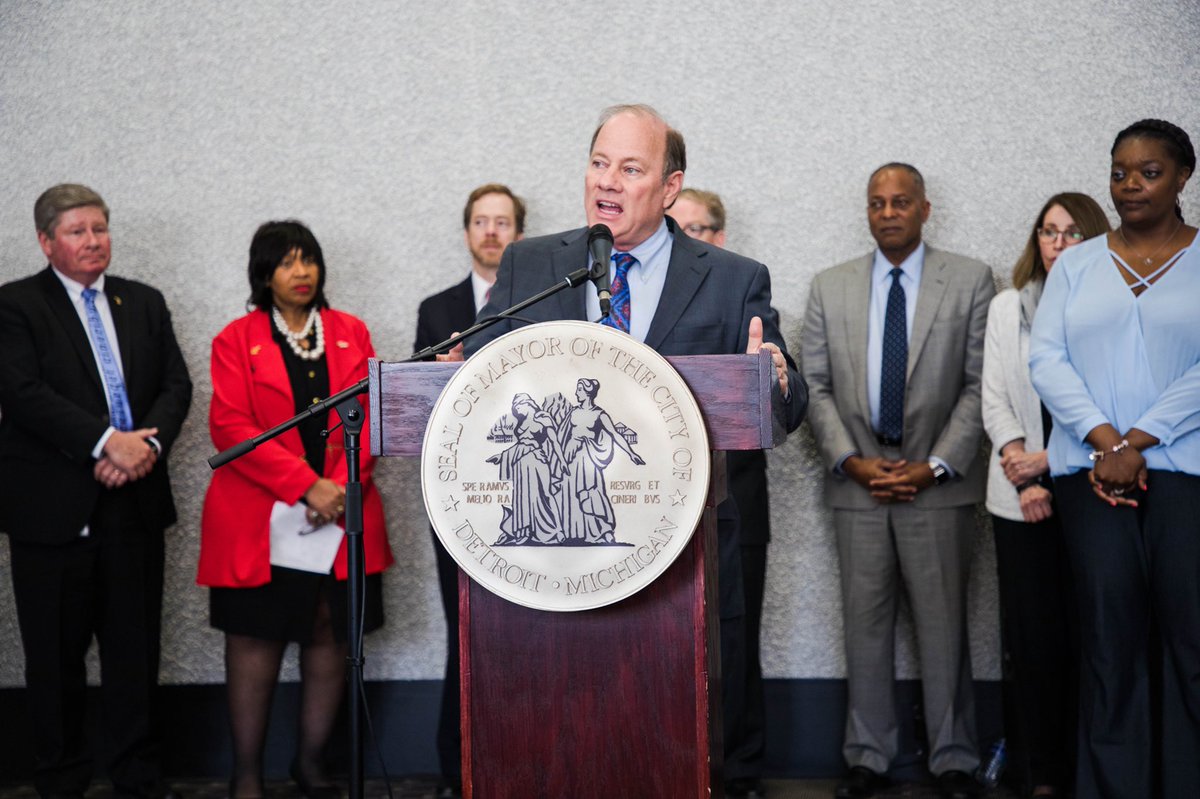
For the first time in over 40 years, the city of Detroit’s elected officials have full control of all city finances and departments and services, when the state’s Financial Review Commission voted unanimously to go dormant after the city registered its third consecutive audited balanced budget following bankruptcy. Detroit has now exited every form of state and federal oversight, including water department, police department, housing commission and more.
“Today is a testament of what happens when the mayor and city council work together for a single goal,” said Mayor Mike Duggan. “It’s hard to remember how scary things were back in the summer of 2014 when the financial review legislation was proposed. We had oversight in multiple places and over the last few years, working together, we have eliminated every single one of those outside oversight boards. Today, we really do return self-governance back to the city of Detroit.”
The Financial Review Commission will continue to exist for a 10-year term, although it will play no active role in city operations. Detroit will be required to submit monthly financial reports and will also submit its adopted budget and four-year financial plan each year. As long as the city continues to balance its budgets and meet other basic fiscal requirements, the Financial Review Commission will stay inactive for the rest of its existence.
Since 1977, Detroit has been in some kind of federal or state oversight in several different areas. The Detroit Water and Sewerage Department was under federal court oversight for 36 years, Detroit Police Department 13 years under federal monitoring, 10 years of federal monitoring for the Detroit Housing Commission, nine years for Detroit Public Schools, state control of city finances for five years, and four years of state control for the Detroit Department of Transportation. With the close collaboration between Duggan and Detroit City Council, they will not have to worry about anyone looking over their shoulders anymore, as they work to revive the city.
“Today is an important day in the history of our city,” said City Council President Brenda Jones. “Many have said there is one Detroit, some are saying there’s two and three Detroits. But I can guarantee you, as we continue to work to bring this city together, and for those that are in the communities and not in midtown and downtown, we will continue to work to bridge that gap. We want everyone to have good services in this city and we are looking to move Detroit forward.”
Detroit ended the 2017 fiscal year with a $53.8 million general fund operating surplus and revenues exceeding expenditures by $108.6 million. The city ended the 2016 fiscal year with a $63 million surplus. For 2015, the surplus was $71 million. A $36 million operating surplus is expected for fiscal year 2018.
“One of the things that I think that will make it very difficult for the city to go back to where it was, is that we have fundamentally changed the infrastructure of the city and our financial operations,” said City Chief Financial Officer John Hill. “We should celebrate this moment and continue to work to make sure this is a lasting moment.”
Detroit was about $12 billion in debt and unable to deliver adequate city services when Republican Gov. Rick Snyder placed the city under state receivership in early 2013. A state-appointed emergency manager overseeing Detroit’s finances filed for bankruptcy the same year. It was the largest public bankruptcy filing in U.S. history. Detroit exited bankruptcy in December 2014, restructuring about $7 billion in debt and setting aside $1.7 billion in savings and revenue over a decade to improve city services.
The Financial Review Commission was created in 2014 and given oversight for city budgets, borrowing, collective bargaining agreements, and large city-issued contracts over $750,000 as part of the bankruptcy restructuring plan. While many city officials were thankful for what the nine-person committee did to help the city recover from its financial woes, they were glad to see them go.
“I appreciate what you’ve done,” said City Councilwoman Janee Ayers, chairwoman of the council’s budget and finance committee. “I know you’ll be at arm’s length away and I hope to not see you within that arm’s length.”